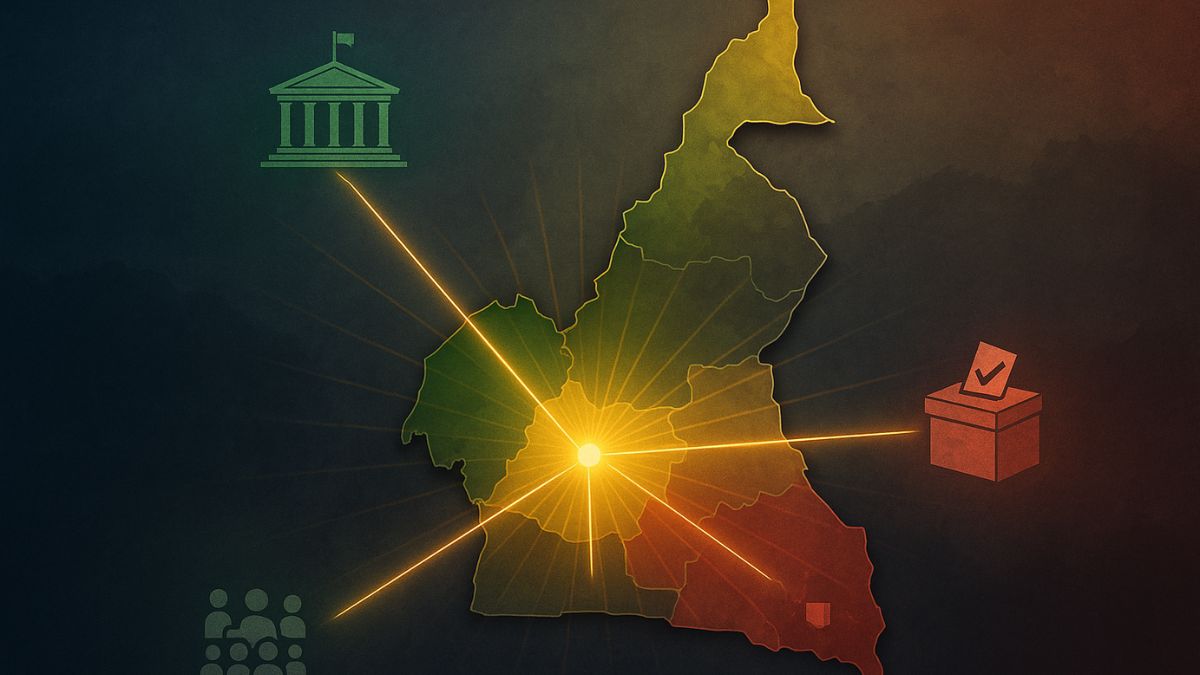Decentralization in Cameroon has been one of the most debated and politically sensitive reforms since the early 1990s. While framed as a solution to the country’s over-centralized governance and the Anglophone crisis, many observers question whether the decentralization process has delivered meaningful results—or simply remained a political promise.
This article examines the history, legal frameworks, progress made, and ongoing challenges around Decentralization in Cameroon, and whether it represents real transformation or a symbolic gesture.
Historical Background: From Centralization to Decentralization
Cameroon inherited a centralized administrative system from French colonial rule, which was reinforced after independence in 1960. Despite its dual colonial heritage (French and British), Cameroon became a unitary state in 1972, dissolving the federal structure that had allowed for some autonomy in the English-speaking regions.
Key Milestones in Decentralization:
- 1996 Constitutional Amendment: Introduced the concept of “decentralized territorial collectivities”—regions, councils, and communes with legal autonomy.
- 2004 Decentralization Laws: Laid down structures for regional councils, inter-municipal cooperation, and financial autonomy.
- 2019 General Code of Decentralized Territorial Communities: Reaffirmed decentralization as a pillar of governance and introduced Special Status for the Northwest and Southwest regions.
- 2020 Regional Elections: For the first time, Cameroon elected regional councils, a major step towards formalizing regional governance.
The Legal and Institutional Framework
Decentralization in Cameroon is based on the principle of administrative autonomy granted to local governments—namely municipal councils, urban communities, and regional councils.
Key Institutions:
- Ministry of Decentralization and Local Development (MINDDEVEL)
Oversees the coordination, implementation, and evaluation of decentralization policies. - Regional Councils
Introduced in 2020, these are composed of indirectly elected representatives and traditional rulers. - City and Municipal Councils
Operate at the urban and rural levels, responsible for basic services like education, sanitation, and infrastructure. - Special Status for Anglophone Regions
Includes elected House of Chiefs, regional assemblies, and more local control over education and legal matters.
Achievements So Far: Signs of Progress
Despite slow implementation, there have been notable developments in recent years.
1. Election of Regional Councils (2020)
After 24 years of delays, Cameroon finally held regional elections. Though limited in scope and transparency, this move was seen as a significant symbolic step toward devolution.
2. Increased Budget Transfers
In 2023, the government allocated over 200 billion CFA francs (~$330 million) to local governments, nearly triple the 2018 figure.
3. Establishment of Local Development Agencies
Agencies like FEICOM and the National School of Local Administration (NASLA) aim to build local capacity for governance.
4. Special Status for Northwest and Southwest
While controversial, it introduced new institutions designed to give Anglophone regions more autonomy.
Challenges and Limitations: The Gap Between Policy and Practice
Despite constitutional commitments, decentralization in Cameroon remains largely rhetorical and faces numerous structural and political hurdles.
1. Limited Fiscal Autonomy
Local governments rely heavily on central transfers, with little capacity to generate local revenue. Delays in disbursement are frequent, stalling local development.
2. Overlapping Authority and Central Control
Prefects and governors, appointed by the president, often override local decisions. True administrative autonomy is minimal.
3. Weak Capacity and Corruption
Many municipal councils lack the trained staff, infrastructure, and management skills to perform even basic functions. Corruption and political patronage undermine effectiveness.
4. Exclusion of Civil Society and Local Voices
Decentralization has been top-down, with limited community participation. Regional councils are indirectly elected, reducing accountability.
5. Political Instrumentalization
Decentralization is often used to placate dissent—especially in the Anglophone regions—without genuine power-sharing. Critics argue that “Special Status” is more symbolic than substantive.
The Anglophone Crisis and Decentralization
The Anglophone conflict, which erupted into violence in 2016, has intensified demands for federalism or full autonomy. The government responded with decentralization reforms, including:
- Special Status provisions
- Transfer of some powers over education and justice
- Creation of bilingual training and courts
However, separatist groups and civil society have widely rejected these measures as inadequate, citing continued military presence and lack of meaningful power transfer.
Comparative Perspective: How Does Cameroon Measure Up?
Compared to peers in Africa, Cameroon’s decentralization remains among the least effective, according to the Local Government Index (LGI):
| Country | Decentralization Level (LGI rating) | Notable Features |
|---|---|---|
| Rwanda | High | Strong local governance & fiscal autonomy |
| Ghana | Moderate | Participatory planning and local elections |
| Cameroon | Low | Weak local authority, limited autonomy |
Recommendations for Meaningful Decentralization
To move beyond symbolism, Cameroon must address the structural flaws in its decentralization approach:
- Legal Reforms for Direct Elections
Allow direct election of regional executives to ensure local legitimacy and accountability. - Real Fiscal Decentralization
Expand local tax bases and ensure timely, adequate fund transfers. - Capacity Building
Invest in training for local administrators and public service delivery. - Strengthen Local Participation
Involve civil society and local communities in planning and budgeting. - Monitor and Evaluate Performance
Create independent oversight bodies to audit and track local governance outcomes.
Conclusion: Progress or Promise?
Decentralization in Cameroon is a constitutional reality but a political promise still in the making. While the election of regional councils and budget transfers suggest movement, real power remains centralized, and reforms lack depth.
In a country facing regional tensions, youth dissatisfaction, and governance challenges, decentralization is not just a reform—it’s a necessity. The question now is whether Cameroon will turn the page from promises to progress, or continue managing dissent with shallow reforms.
📣 Have Your Say:
Do you think decentralization can resolve Cameroon’s governance and regional conflicts? What changes would make it more effective? Share your thoughts in the comments below.

